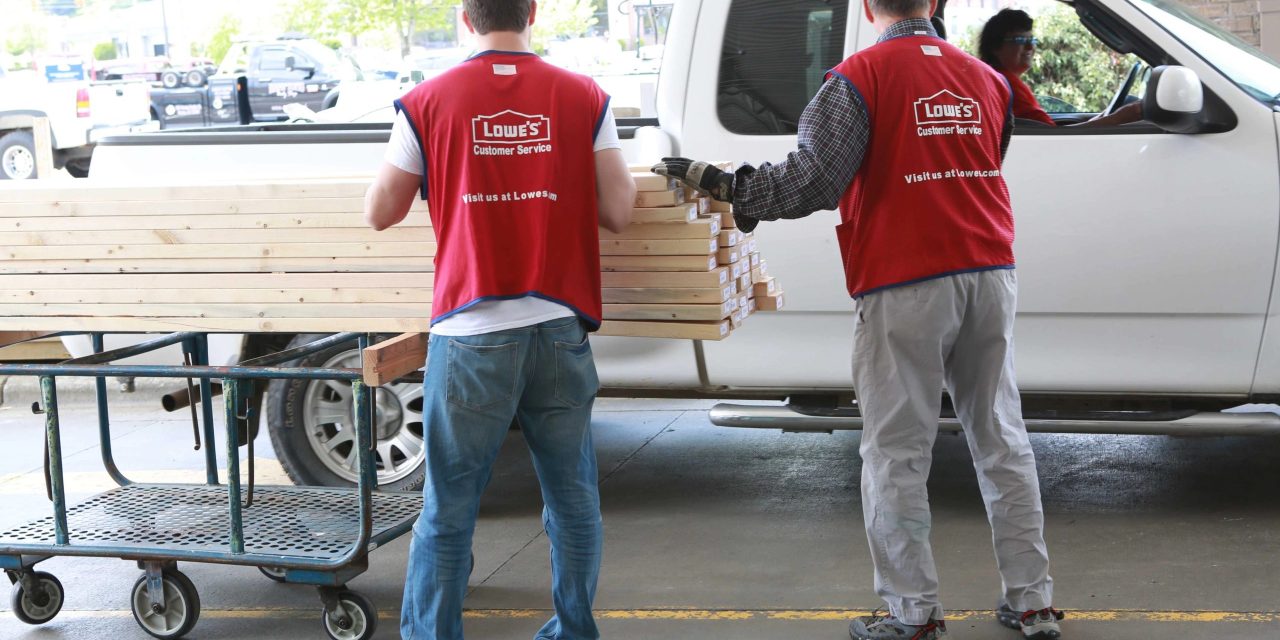How Home Depot and Lowe’s are responding to diminishing foot traffic and demand

Home improvement businesses are expecting lower profits this year as demand tapers off and U.S. shoppers pull back spending on big-ticket items like appliances and furniture.
The Home Depot and Lowe’s both reported drops in comparable sales for their second-quarter earnings. In addition to changing customer habits around large purchases, the brands are seeing lower tickets because of deflation in lumber prices.
During its second-quarter earnings call on August 15, Home Depot revealed that sales were down 2%, or $900 million, from the year before, following a 4.5% decrease last quarter. Similarly, Lowe’s reported Tuesday that comparable sales were down 1.6% in the second quarter, and down 4.6% for tickets over $500. Overall, Lowe’s is expecting sales to be down 2% to 4% this year.
“Home improvement shoppers remain cautious with their spend, especially big ticket discretionary purchases, and are more focused on smaller repair and maintenance projects,” siad Lowe’s president and CEO Marvin Ellison.
The earnings reports point to a bigger trend in the home improvement and furniture sector. The U.S. Census Bureau reported that July sales at furniture and home furnishing stores were down 7.6% unadjusted year over year. Appliance stores, as well as building material and garden stores, were down 3.5% unadjusted year over year.
Michael Hershfield, founder and CEO at Accrue Savings, said the drop is largely due to shoppers normalizing their home-oriented spending from the last few years of explosive growth that occurred during the first years of the coronavirus pandemic. Shoppers may also put off big purchases due to lingering uncertainties around the economy and home prices.
“People are spending on the core things that matter on a daily basis,” Hershfield said.
Ad position: web_incontent_pos1
William Boltz, Lowe’s evp of merchandising said during the earnings call that appliance sales have returned to pre-pandemic trends. In response, brands are putting out more promotional offerings that help draw in sales. He said that “100,000 appliances break every single day, we’ve got to be there for our consumer. But it’s not a radical shift to heavy promotions. It’s more of a normalized promotion.”
During its second quarter-earnings call on Aug. 15, Home Depot evp of merchandising Billy Bastek said big-ticket discretionary categories like patio and appliances saw “unprecedented demand” for the past three years. But this year, transactions over $1,000 were down 5.5% compared to the second quarter of last year.
The company’s overall sales are also dropping because of deflation in lumber: As an example, on average framing lumber was approximately $420 dollars per thousand board feet this past quarter compared to approximately $715 dollars in the second quarter of 2022, representing a decrease of over 40%, Bastek said.
Housing market effects
Placer.ai looked at foot traffic to Home Depot and Lowe’s at the halfway point through the year and found that visits were down compared to the year before. However, the gap is tightening — both brands saw 4.2% fewer visitors in July 2023 compared to the year before.
Ad position: web_incontent_pos2
R.J. Hottovy, head of analytical research at Placer.ai, said both Home Depot and Lowe’s are seeing benefits from the pro customer, or those who are professional contractors and businesses. And they’re seeing smaller DIY project investments.
“Housing turnover is a big thing, house prices, interest rates,” Hottovy said. “These are all key things highly correlated with visits in the home improvement sector.”
Home Depot president, chair and CEO Ted Decker said there is overall uncertainty about where home improvement spending is heading, or how monetary policy actions might affect demand. But home-owning customers who are gaining equity remain a strong and reliable customer — and with home interest rates being high, some homeowners are more likely to invest in upgrades rather than go buy a new home.
“When we do get through this period of moderation, we remain incredibly bullish on the sector. We couldn’t feel better about the macro for housing and home improvement, in our prospects and ability to keep taking share in this huge and still largely fragmented market,” he said.

